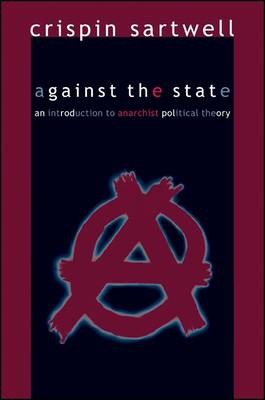
Door een staking bij bpost kan je online bestelling op dit moment iets langer onderweg zijn dan voorzien. Dringend iets nodig? Onze winkels ontvangen jou met open armen!
- Afhalen na 1 uur in een winkel met voorraad
- Gratis thuislevering in België vanaf € 30
- Ruim aanbod met 7 miljoen producten
Door een staking bij bpost kan je online bestelling op dit moment iets langer onderweg zijn dan voorzien. Dringend iets nodig? Onze winkels ontvangen jou met open armen!
- Afhalen na 1 uur in een winkel met voorraad
- Gratis thuislevering in België vanaf € 30
- Ruim aanbod met 7 miljoen producten
Zoeken
€ 40,45
+ 80 punten
Uitvoering
Omschrijving
In Against the State, Crispin Sartwell unleashes a quick and brutal rejection of the traditional arguments for state legitimacy. Sartwell considers the classics of Western political philosophy--Hobbes, Locke, Rousseau, Hegel, Hume, Bentham, Rawls, and Habermas, among others--and argues that their positions are not only wrong but also embarrassingly bad. He separates the traditional pro-state arguments into three classes: social contract theories, utilitarian justifications, and justicial views, all while attacking both general strategies and particular formulations. Sartwell argues that the state rests on nothing but deadly force and its accompanying coercion, and that no one is under any obligation to obey the law merely because it is the law. He concludes by articulating a positive vision of an anarchist future, based on the "individualism" of such figures as Emerson and Thoreau. Against the State provides a rigorous and provocative foil to the classic texts, and also serves as a concise statement of the anarchist challenge.
Specificaties
Betrokkenen
- Auteur(s):
- Uitgeverij:
Inhoud
- Aantal bladzijden:
- 136
- Taal:
- Engels
Eigenschappen
- Productcode (EAN):
- 9780791474488
- Verschijningsdatum:
- 22/05/2008
- Uitvoering:
- Paperback
- Formaat:
- Trade paperback (VS)
- Afmetingen:
- 154 mm x 228 mm
- Gewicht:
- 190 g

Alleen bij Standaard Boekhandel
+ 80 punten op je klantenkaart van Standaard Boekhandel
Beoordelingen
We publiceren alleen reviews die voldoen aan de voorwaarden voor reviews. Bekijk onze voorwaarden voor reviews.











